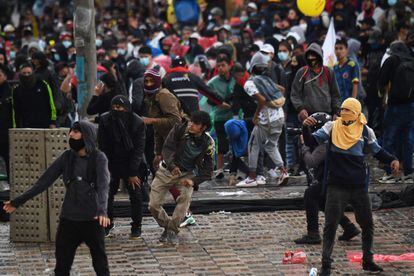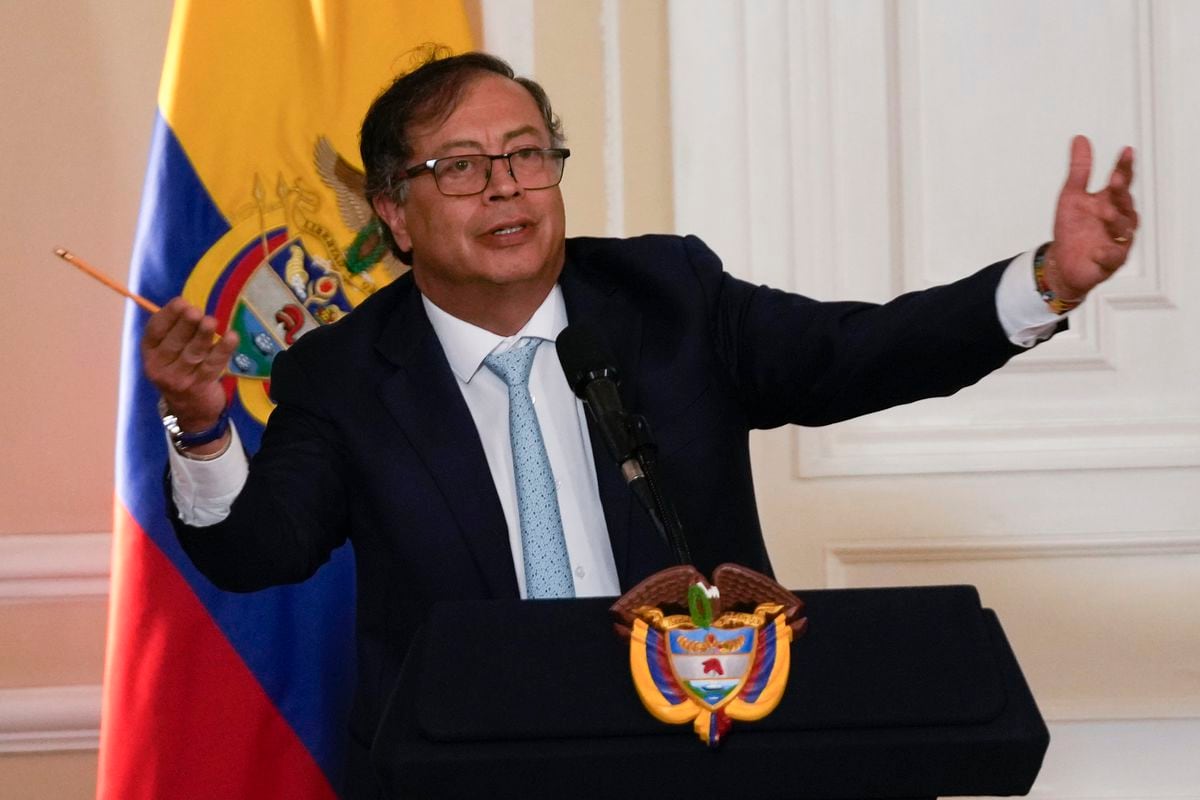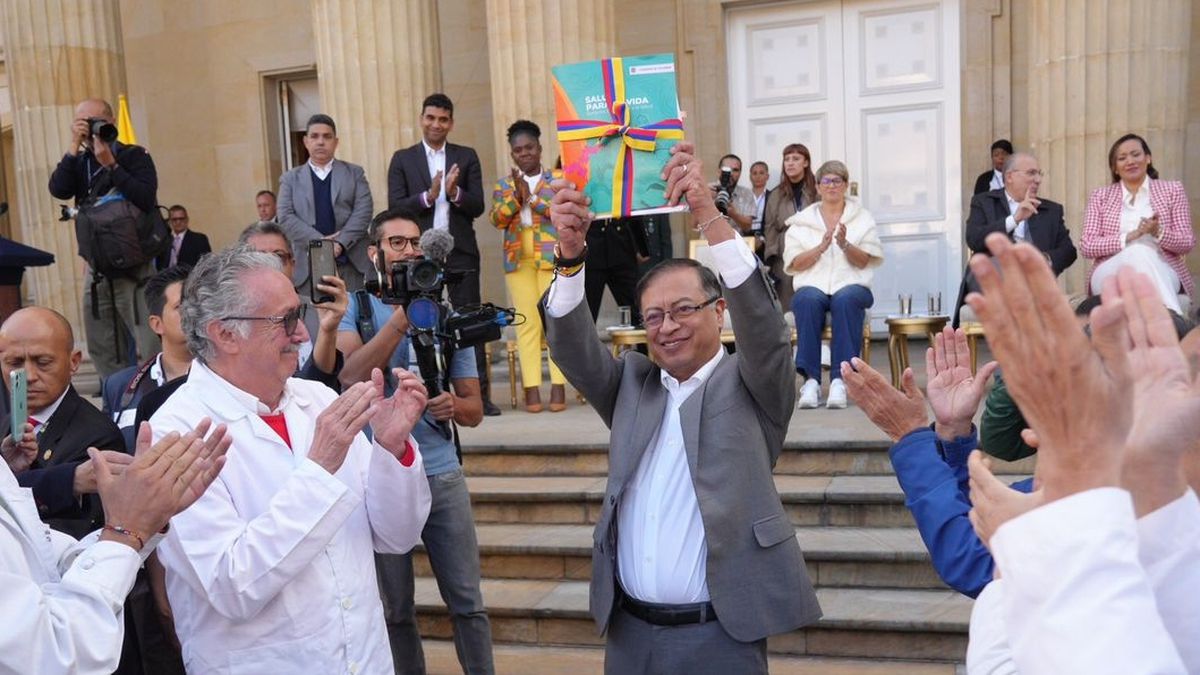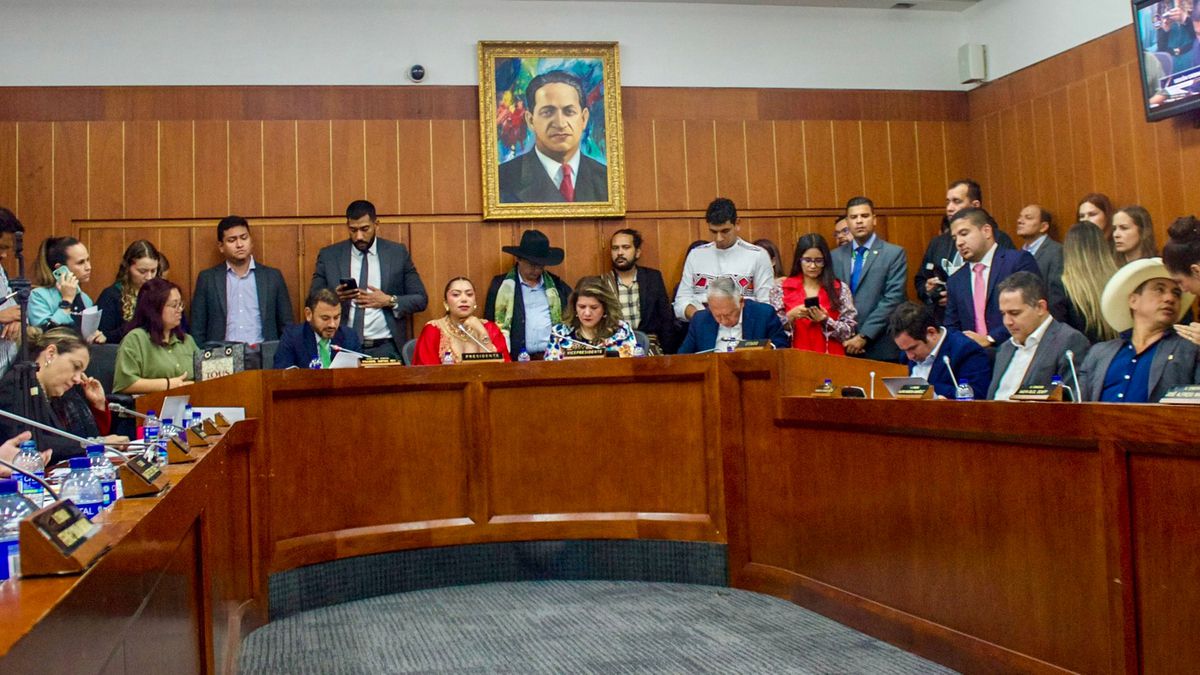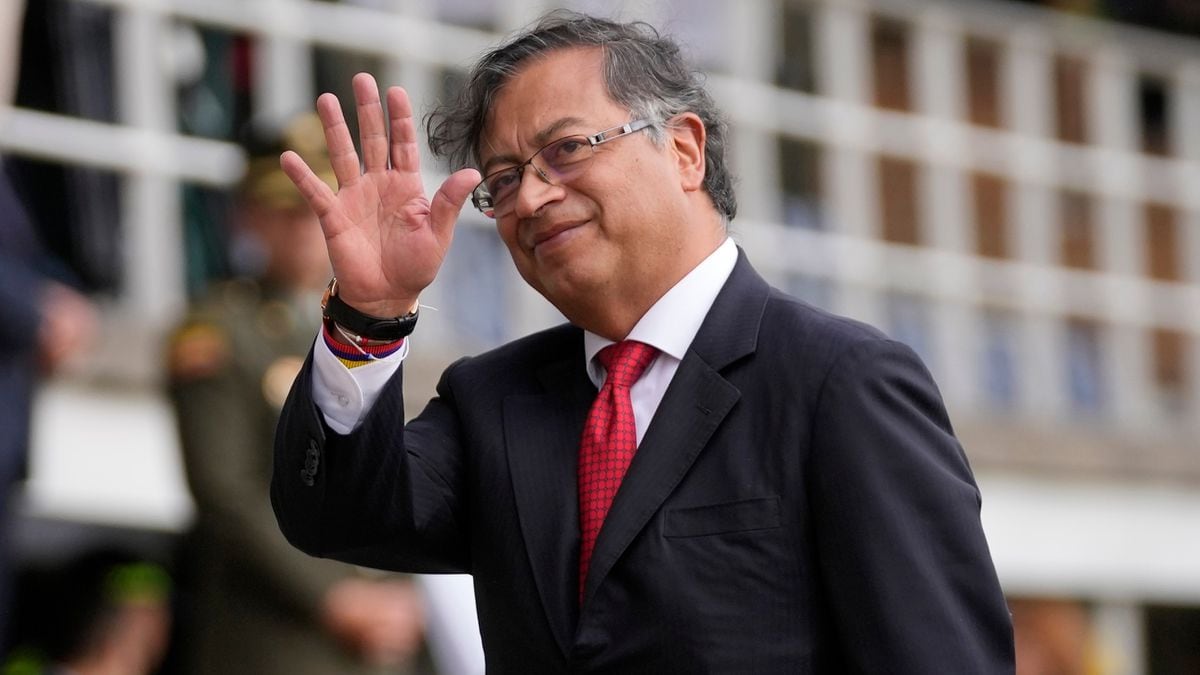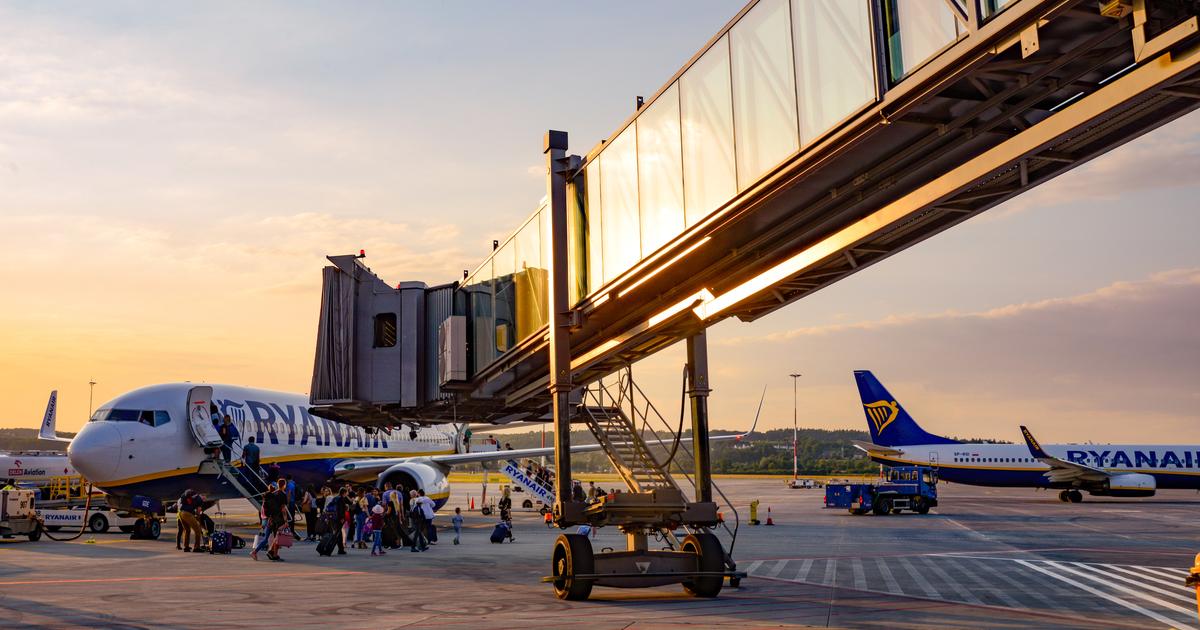Demonstrators confront the police in Bogotá during a national day of protests against the tax reform of the government of Iván Duque.JUAN BARRETO / AFP
The protesters braved the worst moment of the pandemic in Colombia to take to the streets of the main cities. His harangues are back to reject the tax reform that the government of Iván Duque has proposed in order to cover the fiscal gap left by the health crisis. The so-called national strike that at the end of 2019, before the outbreak of the coronavirus, had already subjected considerable pressure to the president, was reactivated this Wednesday with massive marches, blockades, sporadic clashes with the police and some disturbances throughout the day, despite the multiple calls to postpone them or to privilege other methods of protest.
The mobilizations were mostly peaceful, although in the city of Cali the protests led to vandalism. Early in the morning, a group of indigenous people demolished the statue of the Spanish conqueror Sebastián de Belalcázar, and the protesters burned three buses of the mass transport system and looted chain stores. The mayor, Jorge Iván Ospina, decreed a curfew from 3:00 p.m. and the Army was deployed in the streets. "There is a good behavior on the part of the citizens, with the exception of Bogotá and Cali, where the Available Force and the Mobile Anti-Riot Squad have had to intervene in some blockade attempts," the Ministry of Defense balance noted after noon. "We are not going to tolerate more violent acts in any part of the country," declared the head of the portfolio,Diego Molano.
More information
Colombian indigenous people demolish a statue of Sebastián de Belalcázar for the second time
In the capital there were from the first hours traffic blockages and the Transmilenio stations, the mass transport system of articulated buses. "I want to ask citizens for their care and health to begin to return to their homes" from 2:00 pm, declared the mayor of Bogotá, Claudia López, announcing that Transmilenio will close at 5:00 pm. Despite the fact that López, from the progressive Alianza Verde party, has maintained a tense pulse of leadership with President Duque throughout the pandemic, he had already considered that marching at this time was "an attempt on life." Major cities have resorted to renewed lockdown measures and night curfews to overcome this critical moment, with hospitals on the brink of collapse. In Bogotá, Medellín or Cali,the occupancy of Intensive Care Units exceeds 90%.
The mobilization posed a challenge to the multiple calls to avoid crowds at a time when the country faces a spike in infections. The conference was convened since March 6, before the details of the government's resisted tax reform proposal were known, despite the fact that most experts consider it necessary. The organizers grouped in the National Unemployment Committee, composed mainly of workers' centrals, student and peasant organizations, maintained the call despite the fact that the day before a confusing ruling by the Administrative Court of Cundinamarca, criticized by various jurists, ordered - on paper - the postponement of the marches. "We are exercising the fundamental right to protest" protected by rulings of the Constitutional Court,Francisco Maltés, president of the Central Unitaria de Trabajadores (CUT) has defended.
"I was very shocked that the Administrative Court of Cundinamarca told us that we cannot go out and march, as if it were a permit, when it is a fundamental right that we have," Isamari Quito, a 20-year-old law student, told this newspaper in the Monument to the Heroes, one of the gathering points in Bogotá. "There are people dying of hunger, it is not only because of covid ... I think the worst pandemic is racism," added this protester, calling the tax reform "disastrous." At this point, several hundred people, almost all of them young, maintained social distancing while making intermittent traffic cuts on the North Highway while chanting between whistles and vuvuzelas the chant "stop to advance / long live the national strike" .
In a year leading up to elections, presidential hopefuls have also positioned themselves with regard to mobilizations. "If we all demonstrate today with cacerolazos in our cities, the protest will be heard and felt without putting ourselves at risk," Sergio Fajardo, former mayor of Medellín, wrote on his social networks. Gustavo Petro, the loser of the second round of the 2018 presidential elections to Duque, has emerged as the most visible promoter of the protests among political leaders. “You don't want crowds? It's easy, withdraw the tax reform ”, defiantly assured the left-wing candidate, favorite in the most recent polls for the 2022 elections. Ángela María Robledo and Francia Márquez, two other candidates supported by the feminist movement, marched in the streets of Bogotá.
Although social protest has been largely deactivated during the pandemic by confinement measures, in the almost three years of Duque's government the unrest has resulted in a wide amalgam of claims that include the incessant murder of social leaders, the implementation of peace accords, police abuses, increased funds for public education, inequality or environmental issues. Wednesday's call was boosted by the tax increase proposal that is just beginning its transit through Congress. The Government defends its social component, as it also includes, among other measures, a permanent basic income for the most vulnerable.
Subscribe here
to the
EL PAÍS América
newsletter
and receive all the informative keys of the current situation in the region.

